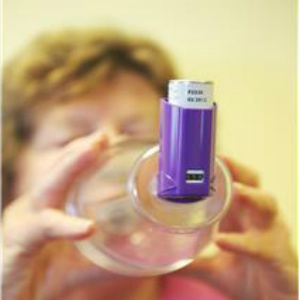Steroid-bronchodilator combination offers survival advantage to COPD patients

Combined use of an inhaled corticosteroid (ICS) and a long-acting beta-agonist (LABA) cut mortality and hospital admissions when compared with use of the bronchodilator alone in patients with COPD, according to an observational study published in JAMA.
Researchers compared LABA-ICS combination therapy with LABA therapy alone in older COPD patients, aged 66 years or older, 8712 of whom were new users of LABA-ICS combination therapy and 3160 new users of LABAs alone. The two groups of patients were matched using propsensity scoring and followed up for a median of 2.7 years and 2.5 years, respectively.
New use of LABA-ICS combination therapy was associated with a ‘modest but statistically significant’ 3.7% reduction in the risk of death or admission to hospital for COPD, compared with new LABA use alone, the team reported.
A bigger reduction – of 6.5% – was seen with the combination in those COPD patients who also had asthma.
The researchers said their ‘real-world’ data provided much-needed information on the management of patients with both COPD and asthma – often excluded from trials – as well as those without asthma thought to be unresponsive to steroids.
They wrote: ‘Our finding of an association between LABAs and ICSs and outcomes helps clarify the management of patients with COPD and asthma, as many studies of COPD medications have excluded people with asthma and vice versa.
‘In addition, practice guidelines for COPD recommend that LABAs be considered first-line treatment while asthma guidelines warn against use of LABAs without ICSs. Our findings also offer insight into the optimal treatment of COPD patients without asthma – those who would not be considered especially corticosteroid responsive.’
JAMA 2014; available online 17 September
Pulse October survey
Take our July 2025 survey to potentially win £1.000 worth of tokens

Visit Pulse Reference for details on 140 symptoms, including easily searchable symptoms and categories, offering you a free platform to check symptoms and receive potential diagnoses during consultations.









